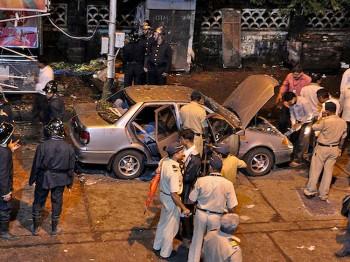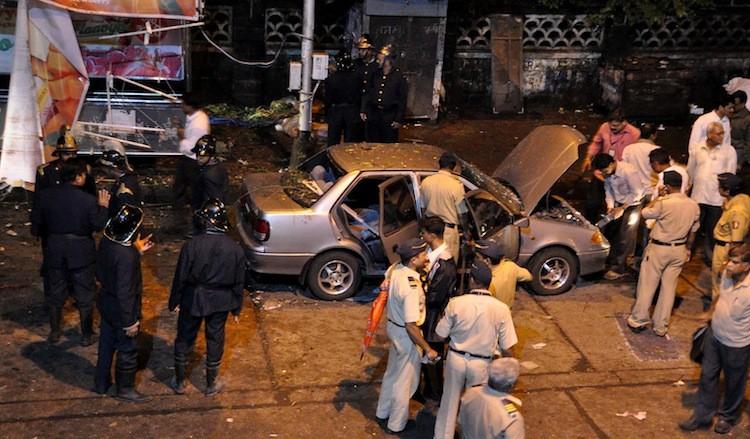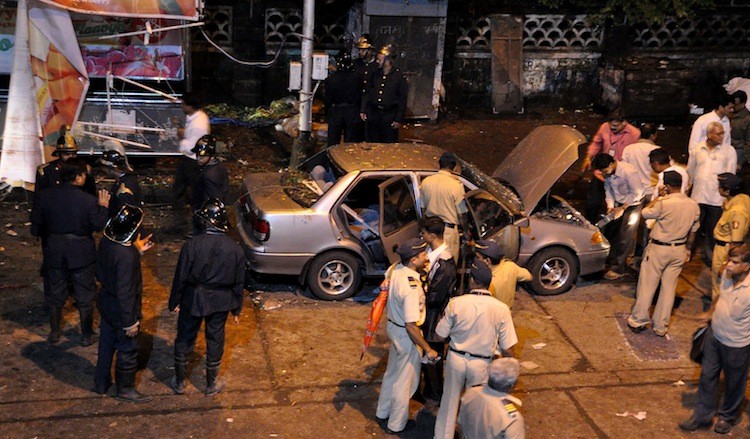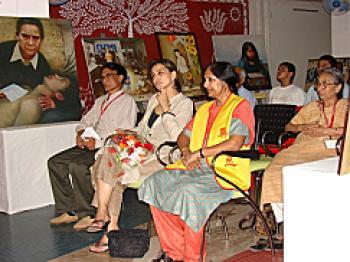Mumbai Blasts Kill 21 in ‘Coordinated Terrorist Attack’
Three explosions within about 10 minutes killed at least 21 people and injured about 130 more in Mumbai during rush hour in what appears to be related attacks, according to local media.

Indian security personnel and investigators gather at a bomb blast site in the Dadar District of Mumbai on July 13. Multiple blasts have rocked India's financial hub Mumbai, police said, in what the Home Ministry described as a 'terror strike.' Sujit Jaiswal/Getty Images
|Updated:


